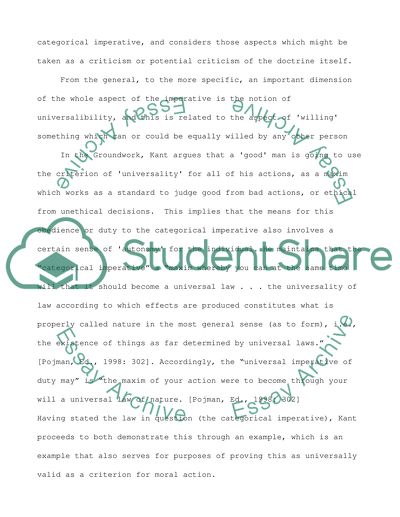Cite this document
(“The categorical imperative and duty to Kant and comparing his ideas to Essay”, n.d.)
Retrieved from https://studentshare.org/environmental-studies/1421353-the-categorical-imperative-and-duty-to-kant-and
Retrieved from https://studentshare.org/environmental-studies/1421353-the-categorical-imperative-and-duty-to-kant-and
(The Categorical Imperative and Duty to Kant and Comparing His Ideas to Essay)
https://studentshare.org/environmental-studies/1421353-the-categorical-imperative-and-duty-to-kant-and.
https://studentshare.org/environmental-studies/1421353-the-categorical-imperative-and-duty-to-kant-and.
“The Categorical Imperative and Duty to Kant and Comparing His Ideas to Essay”, n.d. https://studentshare.org/environmental-studies/1421353-the-categorical-imperative-and-duty-to-kant-and.


